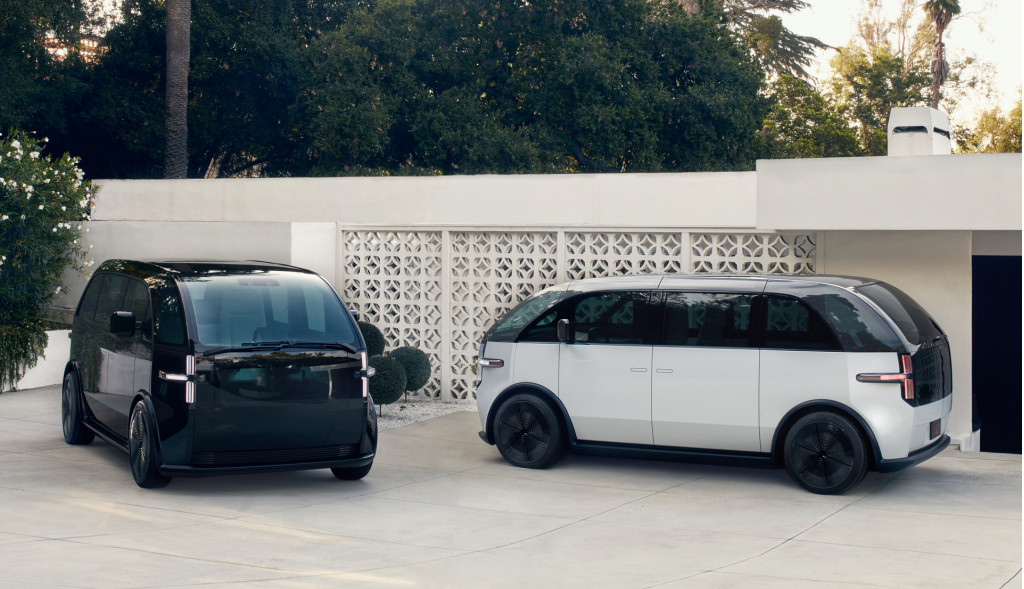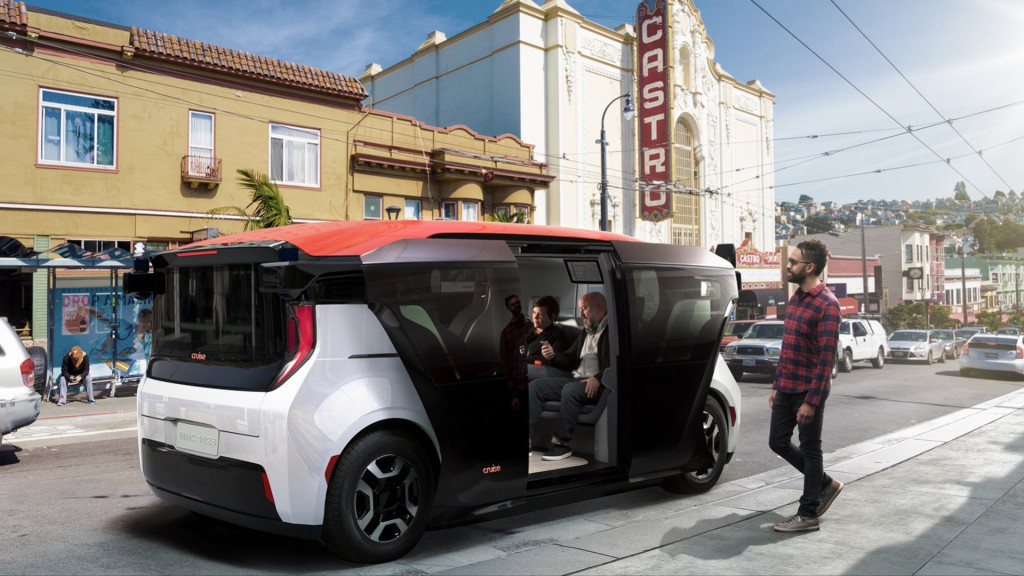Which automaker’s targets for electric vehicles are seen as out of reach by a consulting firm?
What kind of vehicle will be built at the former Chevy Volt plant?
This is our look back at the Week In Reverse—right here at Green Car Reports—for the week ending January 24, 2020.
Looking back at the week’s green-car news, it was far from boring and included plenty of new product, new partnerships, and plot twists.

2020 Audi Q5 TFSI e
In terms of product, Audi has set prices for its two newest plug-in hybrid models—versions of the Q5 crossover and A8 sedan—that are roughly equivalent to performance versions. So figure in the EV tax credit, and they’re potentially great deals.
Production of the Mercedes-Benz EQC electric SUV has lagged so far—to the degree that it’s been delayed by more than a year to focus sales on Europe. Yet Daimler insists it will produce the original 50,000 target of them in 2020.

Canoo electric car
Canoo, the California startup with very distinct vehicle designs and a very different subscription-based model, has opened up its waitlist, and included some Tesla-like referral bonuses.
And Volvo confirmed that a plant expansion in South Carolina will include a battery facility—likely to supply packs for a fully electric version of the Volvo XC90.
Farther off in the future, Subaru has announced a plan to electrify all of its lineup—to electric vehicles or hybrids—by the mid 2030s. And an established consulting firm suggested that VW’s targets for building electric cars later this decade might be out of reach.

Cruise Origin driverless vehicle
Tuesday night, Cruise revealed its Origin, a self-driving vehicle that will share its platform and propulsion systems with GM’s next-generation electric vehicles. And then Friday, a report all but confirmed that the Origin will be built at GM’s Detroit-Hamtramck plant, where the Chevy Volt was made.
In new partnerships, Hyundai and Kia have invested in Arrival, the UK-based company that has created both a platform for electric commercial trucks and some very distinctive designs. And FCA and Foxconn are in talks to potentially develop electric cars, first for China.

2007 Toyota Prius
This week’s story that generated the most comments looked back at what the Toyota Prius has accomplished and where it’s headed.
Of interest to EV enthusiasts everywhere: New Jersey came up with one of the most comprehensive plans yet, in the U.S., to incentivize EVs. It includes up to $5,000 of “cash on the hood.”
![Tesla Store Los Angeles [photo: Misha Bruk / MBH Architects] Tesla Store Los Angeles [photo: Misha Bruk / MBH Architects]](https://images.hgmsites.net/lrg/tesla-store-los-angeles-photo-misha-bruk-mbh-architects_100449435_l.jpg)
Tesla Store Los Angeles [photo: Misha Bruk / MBH Architects]
Tesla provided some pushback to the unintended-acceleration claims seeking attention from NHTSA; the carmaker took its argument a step further, pointing to a profit-motivated short-seller of the company’s stock. And then later in the week, a court settlement cleared Tesla to finally set up service centers in Michigan, along with stores, but it still can’t title its new vehicles in the state.
A plan to rework national fuel economy rules is now reportedly in draft final-rule form and submitted to the White House.
And the diesel-scandal aftermath still isn’t put to bed. As a new generation of fully electric vehicles rolls off the line for Europe, Canada fined Volkswagen $150 million for environmental violations relating to its nonconforming vehicles.
_______________________________________
